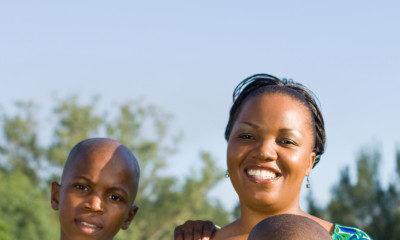Features
Olufunke Olumide: Could the Multifamily Office Approach Be Adopted into The ‘‘Nwa Boi’’ Practice?

It was one of those weekends when ladies just wanted to relax and take a break from adulting and responsibilities. The men were out, and the kids were occupied with their own activities. We made a conscious effort to steer clear of work and family discussions and ended up watching the movie “Afamefuna,” directed by Kayode Kasumu. The movie successfully blends education and entertainment. Some of us could relate to it, while others found the plot intriguing. What united us was our appreciation for the ‘‘Nwa Boi’’ tradition. However, the mood shifted when one of us in the room unexpectedly started asking probing questions:
Can generational wealth be infused into it so it’s not just a poverty alleviation scheme? Odogwu’s family were obviously in decline as he grew older & retired, could that be avoided? Couldn’t Ada be protected even if she wasn’t interested in the business? What would have become of her if she didn’t marry another rising star? Must every business/family suffer a hit after the visionary leaves?
The angle of her questions felt very genuine and personal. The “Nwa Boi” is seen as a great way to generate wealth, and the concept of stakeholder capitalism is reflected in the apprenticeship system. This system prioritises sustainable business practices, shared wealth, and community development. In fact, according to the Harvard Business Review, which is used as the prologue in the movie, “The Igbos in Africa have been practising stakeholder capitalism for centuries. The Igbo apprenticeship system (IAS) is recognised as the world’s largest business incubator, with thousands of ventures being developed and established yearly. For the Igbos and some Africans, it is a functional system that has brought equality and peaceful coexistence in communities.”
However, can other structures be put in place to ensure it also serves as a tool for generational wealth within families, while still sustaining its ability to spread wealth across the community? It presently has a horizontal wealth circulation to it, but with a few more corporate engineering and creative operational structures, it can also have a vertical wealth preservation angle to it.
Does the Igbo community ever consider infusing some of the structures used in sustaining family businesses across multiple generations into the Nwa Boi practice? These structures go beyond general corporate governance; they tread on the technical lines that distinguish between control and ownership. Layering businesses on different levels, each with corporate structures and models required to accommodate multiple distinct but complementary verticals. They require the combination of different family and corporate governance systems, factoring succession across different stakeholders at different levels amongst many other systems and structures tailored to specific families, businesses and many scenarios.
The practice gives a good start for many who want to get out of poverty. It helps in community wealth, but can we make it a generational wealth system too? In “Afamefuna“, why were the uninterested daughters of Odogwu not carried along as stakeholders in a bigger structure, therefore keeping a portion of the father’s wealth in the family? Could Afamefuna have done a franchise and considered capturing a bigger market share instead of starting afresh? Could they have set up a multifamily office that would have catered to as many families that came out of Odogwu’s store, therefore, making their freedom a quasi-independent structure still within the conglomerate?
The current IAS provides a strong foundation for entering the business world for both the founder/businessman and the apprentice learning under him. However, does it truly provide the best training for the apprentice and the mentor businessman? Well, the day goes fast when you’re alone with the girls. Before we could prob further, the kids came calling and we called it a day.
***
Featured Image by Edmond Dantà for Pexels






















